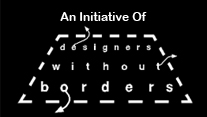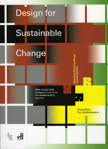David Stairs

I’ve been writing about altruism at this blog for so long it all begins to blend together. My inaugural essay spoke about the biological/memetic basis for altruism. The year before I had published an essay at Design Issues that was a prelude to D-A-P. Finally, along comes a book that corroborates some of the things I’ve been saying.
The Penguin and the Leviathan, by Yochai Benkler, the Berkman Professor of Entrepreneurial Legal Studies at Harvard Law School, is a follow-on to his 2007 The Wealth of Networks. Benkler’s current thesis is that humans are much more cooperative than we’ve previously allowed. Using the Linux penguin as his totem of cooperation, Benkler cites Wikipedia, E Bay, Obama’s 2008 campaign, and Southwest Airlines as just a few of the many examples of the power of cooperation.
The scientific and psychological research of the last 30 years suggests that people are fundamentally cooperative not, as formerly believed, self interested. Our hierarchical, punitive, incentivized economic, legal, and educational systems are designed for the wrong model. In Benkler’s words: “Through the work of hundreds of scientists, we have begun to see mounting evidence in psychology, organizational sociology, political science, experimental economics, and elsewhere that people are in fact more cooperative and selfless, or at least behave far less selfishly, than most economists and others previously assumed.” I’ve previously argued the benefits of communal interest over incentivized self-interest in posts about our models of design education.
Benkler, arguing primarily from a business law point of view, suggests that the centrally controlled leviathans, such as command-based bureaucracies, like Nazi Germany, Soviet Russia, or CCP China, as well as reward-based institutions, like Wall Street banks and General Motors, don’t have a chance unless they adopt the strategies of Toyota and Google. Benkler’s seven “ingredients of successful, practical, cooperative systems” are: —Communication —Authenticity —Empathy —Fairness —Reward —Transparency, and —Diversity These sound an awful lot like the values that have been popping up all over the design memeplex for the last ten or so years. Many of these values influence reciprocity, which, in turn, begets cooperation. I, for one, think Benkler’s thesis is correct: social engagement is fundamentally connected to creativity. We can only hope that the idea continues to accrue critical mass.
David Stairs is the founding editor of Design-Altruism-Project











Leave a Reply
You must be logged in to post a comment.